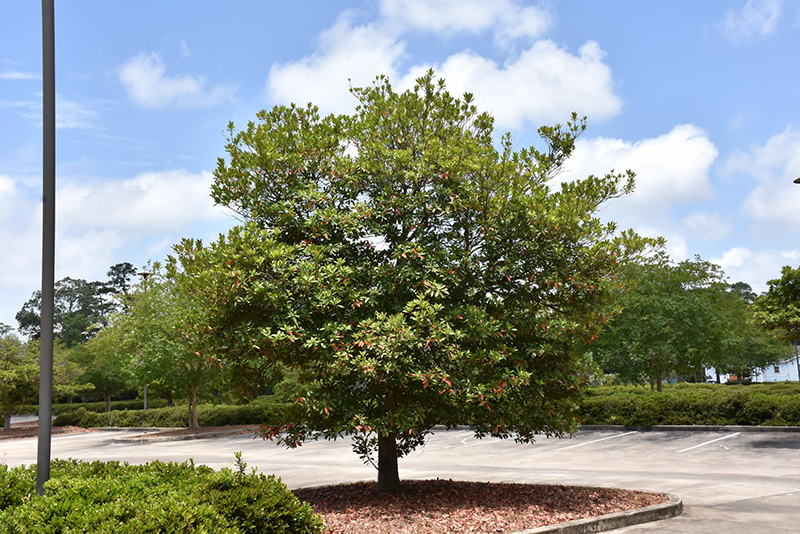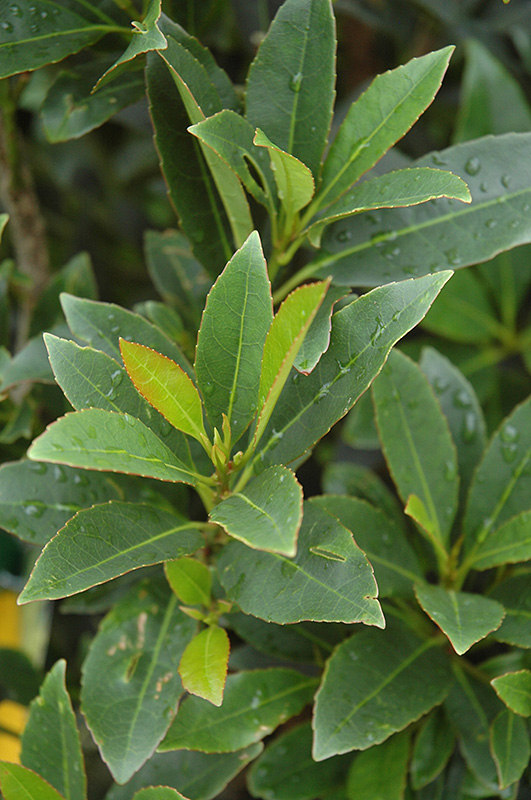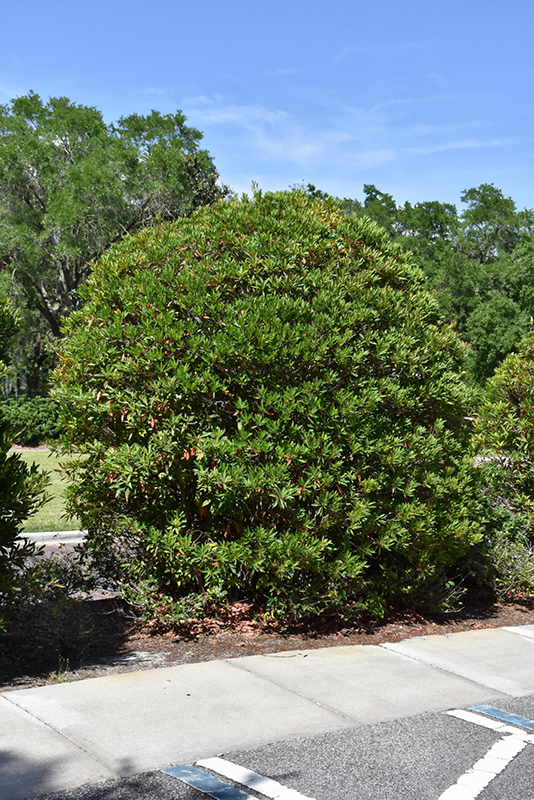Japanese Blueberry Tree Elaeocarpus decipiens Height: 40 feet Spread: 30 feet
Sunlight:
Hardiness Zone: 8a Description: This densely branched, upright variety is a superb ornamental tree that can also be maintained as a tall screen or hedge; older leaves turn a stunning red and persist until new leaves emerge; subtle flowers are highly fragrant; fruits are deep cobalt blue Ornamental Features Japanese Blueberry Tree features subtle fragrant nodding creamy white bell-shaped flowers along the branches from early to mid summer. It has attractive dark green evergreen foliage which emerges coppery-bronze in spring. The glossy pointy leaves are highly ornamental and remain dark green throughout the winter. The fruits are showy royal blue drupes displayed in late fall. The fruit can be messy if allowed to drop on the lawn or walkways, and may require occasional clean-up. Landscape Attributes Japanese Blueberry Tree is a dense evergreen tree with a shapely oval form. Its average texture blends into the landscape, but can be balanced by one or two finer or coarser trees or shrubs for an effective composition. This tree will require occasional maintenance and upkeep, and should only be pruned after flowering to avoid removing any of the current season's flowers. It is a good choice for attracting birds, bees and butterflies to your yard. Gardeners should be aware of the following characteristic(s) that may warrant special consideration; Japanese Blueberry Tree is recommended for the following landscape applications; Planting & Growing Japanese Blueberry Tree will grow to be about 40 feet tall at maturity, with a spread of 30 feet. It has a low canopy with a typical clearance of 4 feet from the ground, and should not be planted underneath power lines. It grows at a medium rate, and under ideal conditions can be expected to live for 60 years or more. This tree does best in full sun to partial shade. It is very adaptable to both dry and moist locations, and should do just fine under average home landscape conditions. It is considered to be drought-tolerant, and thus makes an ideal choice for xeriscaping or the moisture-conserving landscape. It is not particular as to soil type or pH, and is able to handle environmental salt. It is highly tolerant of urban pollution and will even thrive in inner city environments. Consider applying a thick mulch around the root zone in winter to protect it in exposed locations or colder microclimates. This species is not originally from North America.![]()
![]()
![]()
![]()
![]()
![]()
![]()
![]()
![]()
![]()
![]()
![]()
![]()
top of page
Louie's Nursery Menifee - Plant Finder
Characteristics
Applications
Features & Attributes
This tool is an online resource representing many of the varieties that we carry over the course of the season, and is intended for informational purposes only. Inventory varies seasonally, so we cannot guarantee that every plant will be in stock at all times - please contact the store directly for current availability. It does not include our entire selection of plants, so be sure to visit our store to see varieties that may not be represented on this list.
bottom of page


